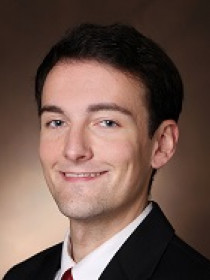
F. Chris Curran
Connect with F. Chris
About F. Chris
Curran is an expert on K-12 education policy. His research focuses on issues of school discipline and student safety, early childhood and elementary education, and teacher human capital. A common thread through his work is a focus on the evaluation of policies and practices aimed at improving educational equity for traditionally disadvantaged groups of students. Recent work includes an examination of the impact of state mandatory expulsion laws on the black-white discipline gap as well as an examination of the policy diffusion of universal preschool. Curran has experience as a middle school science teacher and department chair as well as a metropolitan government employee. Recently, he assisted the Metro Nashville Planning Department with the development of a twenty five year strategic plan, lending his expertise to their development of a long-term vision for education and youth.
Contributions
In the News
Publications
Examines the relationship between the teaching of advanced academic content in kindergarten and student achievement. Indicates that all students benefit from exposure to advanced mathematics and reading, regardless of incoming skills or preschool experience.
Examines the political and contextual predictors of state adoption of universal preschool policies. Demonstrates that Democratic control of the state legislature and prior presence of a targeted preschool program are significant predictors of state adoption of universal preschool.
Utilizes nationally representative data from the ECLS-K to examine the relationship between maternal depression and elementary school student outcomes. Argues that persistent depression predicts negative behavior, lower academic achievement, and increased absenteeism.
Examines teacher preferences for schools by examining their application patterns at a job fair for the Chicago Public Schools. Indicates that schools serving more advantaged students have more applicants per vacancy and that geography is an important predictor of application.